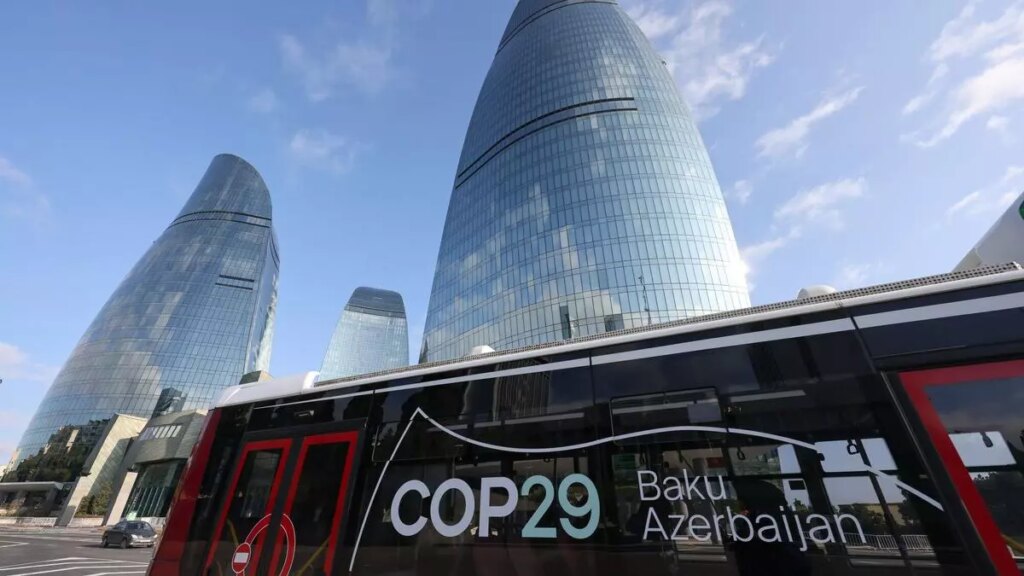Turbulent passage ahead for climate talks

The 11-day climate ministerial (COP 29) at Baku, Azerbaijan, begins today, days after a global political earthquake. Climate sceptic Donald Trump has won the US elections, which has been taken by many to mean that the US, the second biggest polluter in terms of current emissions and the biggest in historical terms, may abandon its promises on climate actions.
It does appear that that the rest of the world is keeping its fingers crossed — while vexatious issues of climate finance are slated to be the top agenda item at COP 29. Top leaders of US, China, India, UK, Germany, Brazil and France have decided to skip the meet. But the absence of the crème de la crème of the world leadership does not mean that COP 29 is headed nowhere. It is expected to flesh out details with respect to New Collective Quantified Goals (NCQG) on climate finance. The issues to be thrashed out are: the quantum of finance needed, and the manner in which it is to be raised and disbursed. According to a September report by the UN Framework Convention on Climate Change (its Standing Committee on Finance), it will cost upwards of $6 trillion to fund the ‘nationally determined contributions’ of 78 countries or more till 2030 (a 10-15 year calculation).
Since precious little has been raised over time through the Green Climate Fund (for which the developed world was supposed to fork out $100 billion annually), it means at least $1 trillion will have to be raised annually, as India has said. This seems to include requirements for adaptation (adjusting to present and future impacts of climate change, pegged at $187-359 billion annually by the UN) and mitigation (reducing greenhouse gas emissions). Fund raising has not picked up, thanks to the obstinate refusal of the developed world to meet its obligations by virtue of being historical emitters. They are denying the developing world a cleaner development pathway, and holding up the latter’s growth and poverty reduction efforts. Apart from the fact that funds are a mere trickle, over 60 per cent is disbursed by way of loans, over 30 per cent through equity, and just 5 per cent through grants. This can only add to the crippling debt burden of many poor countries.
Meanwhile, the developed world has been implicitly arguing that China and India should contribute to the climate kitty rather than receive monies from it, for being at first and third place in terms of their current emissions (US at second place). While the argument distorts the historical reality of development, it is worth considering whether China and India are in the same league. There is also the issue of whether emissions in one country, say China, on account of investments made by another country, such as US, should be linked to the former or the latter. Climate accounting must clear the air on the colonial legacy, and maybe cross-border investment. If COP 29 prepares the ground for more and equitable climate finance, it will have achieved a lot — under the looming shadow of Trump.








